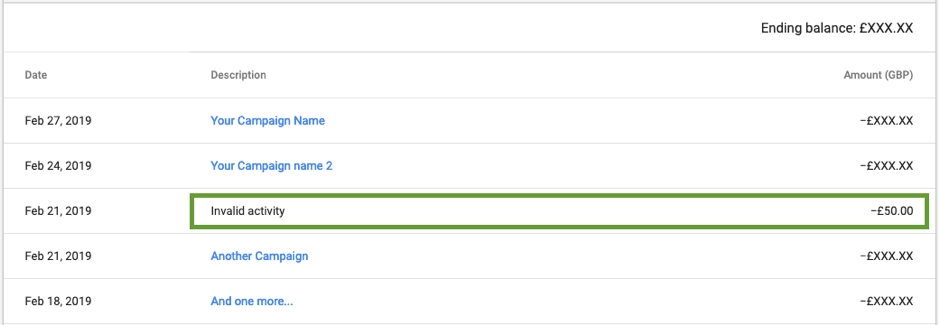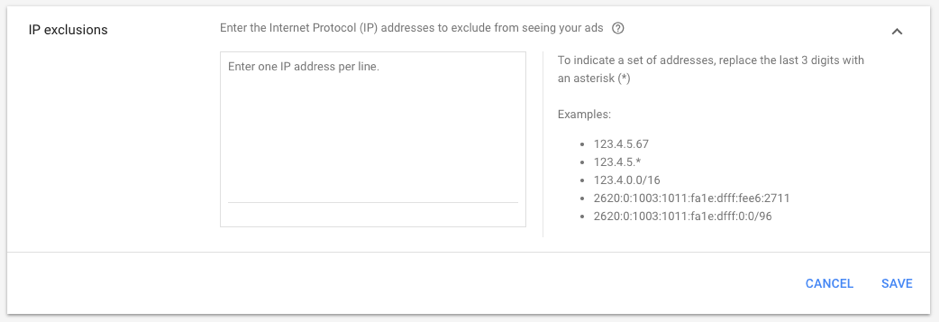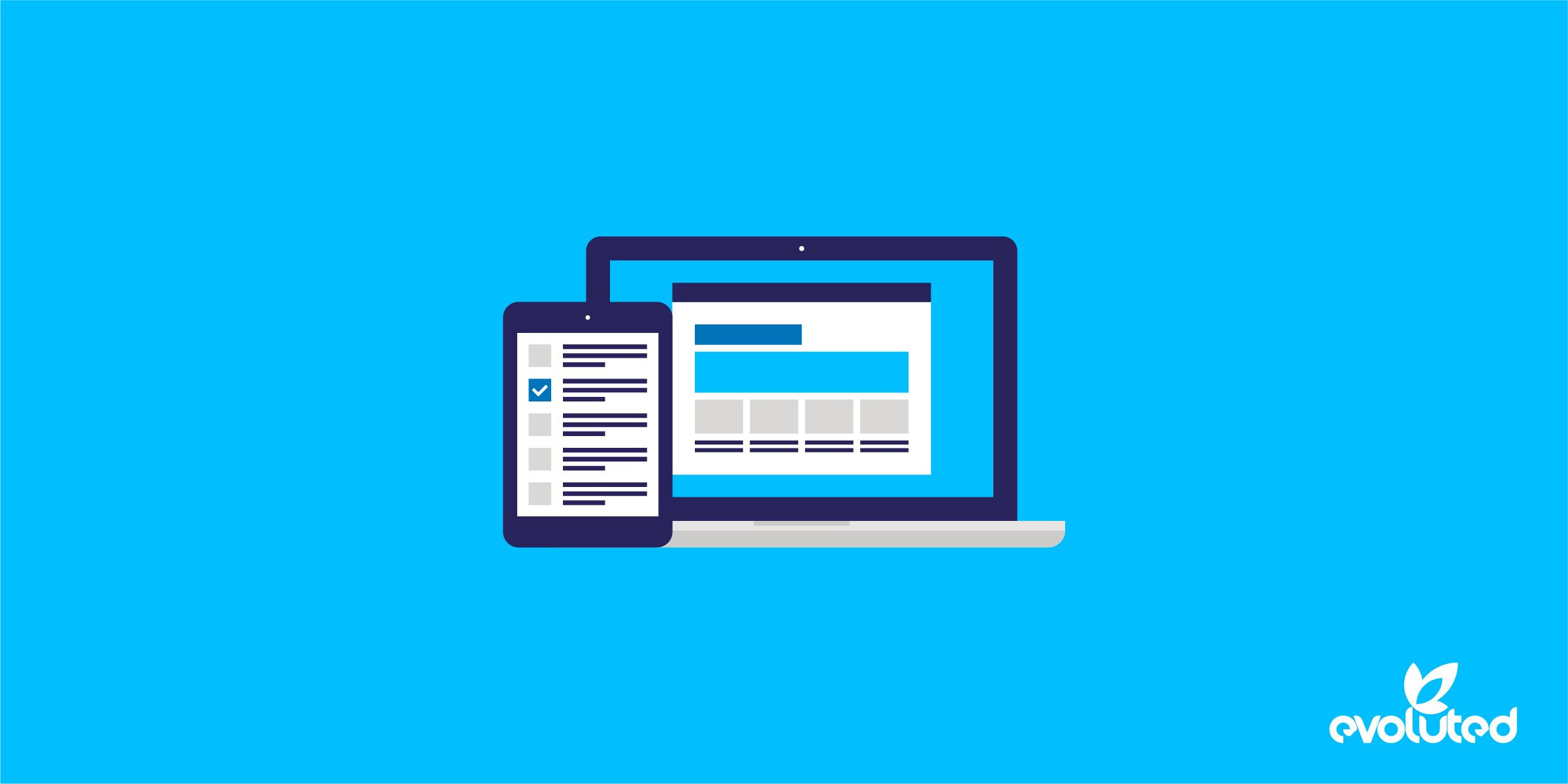Click Fraud - How to detect and prevent
WHAT IS CLICK FRAUD?
Click fraud is a tactic in which users (both human and bots) will repeatedly click on an online ad in order to achieve some kind of illegitimate result for the publisher or the ad, or the advertiser themselves.
There are a number of reasons why click fraud occurs – sometimes it is for the fraudulent benefit of the website owners, and sometimes it is done to damage the performance of an advertiser’s campaigns.
There are (unfortunately) many kinds of fraud which may occur in the online advertising world. This article will be looking specifically at click fraud in CPC based digital marketing.
WHY DOES CLICK FRAUD HAPPEN?
Here are just a handful of reasons click fraud occurs:
CLICK FRAUD DAMAGES COMPETITOR PERFORMANCE
Many online ads, especially in Paid Search, are charged per click. This is known as cost-per-click (CPC). In this process, each click costs the advertiser a certain amount.
An advertiser using a paid search platform such as Google Ads (Adwords) will aim for their ROAS (Return on Ad Spend) to sufficiently offset their total click costs to make a campaign profitable.
If a competitor repeatedly clicks an ad, with no intention of converting or interacting with the advertiser’s offer in any legitimate way, this results in the advertiser being billed multiple times for worthless clicks. Ultimately, this aims to sabotage competitor ad performance.
CLICK FRAUD TO INCREASE PUBLISHER REVENUE
All online ads are published by a particular party who owns the ad space, be it a private webmaster or another advertising network. Click fraud also occurs when publishers artificially increase the volume of clicks ads hosted on their site or network receive as a way of generating more click revenue.
This may not always be malicious – it may simply be a friend or relative of the website owner trying to help out. It is nonetheless click fraud.
OTHER MOTIVES FOR CLICK FRAUD
Beyond harming competitor ad performance and illegitimately increasing ad revenue, there are other reasons why click fraud may occur.
CLICK FRAUD TO FRAME ADVERTISERS OR PUBLISHERS
This includes ‘framing’ a publisher for click fraud – a competitor of a publisher may commit click fraud on their behalf to try to get them in trouble with the advertising network. Many advertisers rely on advertising revenue, and a suspension or disruption of this, even if only temporary, can be very damaging.
CLICK FRAUD AS VANDALISM
Another potential reason for click fraud is online vandalism. Some anonymous users may seek to disrupt or cause harm to an advertiser or publisher, even if they don’t stand to gain anything financially. This can be driven by many motives, including political and personal feuds.
HOW MUCH DAMAGE DOES CLICK FRAUD CAUSE?
According to the Interactive Advertising Bureau (IAB) and Ernst & Young, fraud (including click fraud) costs the U.S. digital marketing, advertising and media industry $8.2 billion every year.
CLICK FRAUD VS. INVALID CLICKS
Not all illegitimate clicks are fraudulent. While click fraud is defined as an intentionally fraudulent activity, invalid clicks can cover a number of accidental or unintended actions. Invalid clicks include accidental clicks, repeat clicks and others that cannot be considered genuine. Invalid clicks are often detected by the advertising network and tend to be removed from overall costs.
HOW TO DETECT CLICK FRAUD

Depending on how sophisticated and organised the fraudsters are, there are a few tell-tale signs that you may be experiencing click fraud.
SUDDEN ANOMALIES IN PERFORMANCE DATA?
Has your rate of spending suddenly spiked? Are you hitting your daily budgets quickly and suddenly? Has your conversion rate suddenly plummeted, or your bounce rate skyrocketed?
These may all be signs of potentially fraudulent activity, particularly if they are sudden anomalies with no recognisable cause.
ANALYSE IP ADDRESSES AND TIMESTAMPS
You can track for click fraud by collecting some information as part of your internal reporting. For this, you will need to collect the following.
IP address
Click timestamp
Action timestamp
Click and action timestamps will allow you to isolate clicks and understand exactly when they clicked and/or performed actions on your website.
If you see a high volume of quick succession timestamps from a single IP address, but with little or no action timestamps, this is probably some kind of click fraud taking place.
If you have this information, you can take action by blocking fraudulent IP addresses.
CAN GOOGLE DETECT CLICK FRAUD?
Google’s systems are able to detect a number of invalid clicks, which may include fraudulent activity. Generally, when identified, the expenses accrued from these clicks will be refunded.
To find this out on Google Ads, visit Billing & Payments under Setup in the Tools menu at the top right. Under transactions, you can view all expenses and account credits by clicking View Transactions And Documents.

In the above example, Google has identified invalid activity which would have cost the advertiser £50.00. This has been refunded to the advertiser.
Another way to identify if you are experiencing click fraud is to see whether there are sudden large invalid activity credits being made. The good news, if this occurs, is Google has already identified the problem, and refunded you.
In addition to Google’s own invalid click detection algorithms, they will also manually investigate suspicious click activity reports issued by advertisers.
HOW TO STOP CLICK FRAUD ON GOOGLE ADS (ADWORDS)
If you are a victim of click fraud and you don’t believe Google’s automated systems are picking up on it sufficiently, here are some actions you can take.
EXCLUDE FRAUDULENT IPS IN GOOGLE ADS
As mentioned earlier, if your internal reporting systems collect IP address information, you can add IP exclusions in Google Ads. This means the specific IP will not be able to see your ads in future, and that user will no longer be able to click them.
This is simple to do. In the Google Ads interface, under the Settings tab in a particular campaign. Expand the Additional Settings button and choose IP Exclusions.

Important things to note when excluding IP addresses:
IP exclusion will prevent a single IP from seeing your ads. The user will be able to see and click your ads from a different IP.
More sophisticated click fraudsters will have processes with which they can get around IP exclusions. This method is effective against less tech savvy users but may not be for more organised ones.
Be sure to repeat the process of detecting IP addresses and excluding fraudulent ones regularly.
EXCLUDE LOCATIONS
If you have a key competitor whom you suspect might click your ads fraudulently, you could try excluding their location from your ad targeting. If you know the location of your competitors’ headquarters, this can be excluded from seeing your ads through Location Targeting.
This can be done by postcode. If your competitor’s headquarters are located in a particular postcode that isn’t of strategic importance to you, you can exclude this from your campaign.

If your competitor headquarters are located in an area that it is important you target (such as a highly populated urban zone), this method may not be applicable.
AVOID LOW QUALITY WEBSITE PLACEMENTS
Many smaller, low-quality sites are known to be sources of click fraud. They are more likely to be associated with bots which may automatically target your Display Network ads. Larger, more established sites are more likely to have processes in place to offer assistance in preventing click fraud.
If nothing else, make sure your website placements are relevant to your product or service to reduce the likelihood of invalid clicks.
CLICK FRAUD PROTECTION SERVICES
There are a range of third-party services, plug-ins and software options designed to reduce click fraud. These vary in price and quality but are a good option if you have the budget available.
Available software includes the automatic tracking of clicks, detection of potential click fraud, and the blocking of bots and fraudulent clickers.
A quick Google of “click fraud protection” will give you a good idea of the services available.
If you require expert support with your next PPC or Paid Media campaign, check out our Paid Media Services today.









